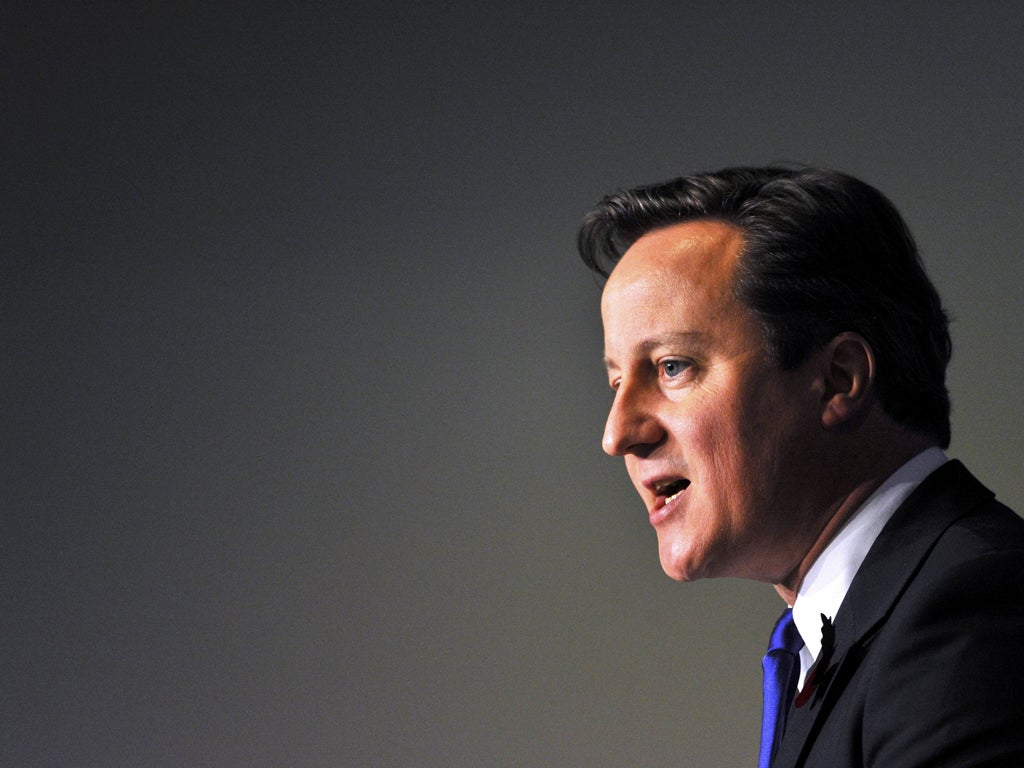
Your support helps us to tell the story
From reproductive rights to climate change to Big Tech, The Independent is on the ground when the story is developing. Whether it's investigating the financials of Elon Musk's pro-Trump PAC or producing our latest documentary, 'The A Word', which shines a light on the American women fighting for reproductive rights, we know how important it is to parse out the facts from the messaging.
At such a critical moment in US history, we need reporters on the ground. Your donation allows us to keep sending journalists to speak to both sides of the story.
The Independent is trusted by Americans across the entire political spectrum. And unlike many other quality news outlets, we choose not to lock Americans out of our reporting and analysis with paywalls. We believe quality journalism should be available to everyone, paid for by those who can afford it.
Your support makes all the difference.David Cameron admitted today that reducing Britain's debts was proving "harder than anyone envisaged".
But the Prime Minister blamed those same debts for acting as a "drag on growth" and insisted that the Government had to press on with its deficit reduction plans.
Speaking to business leaders at the CBI conference in London, Mr Cameron insisted there was no justification for claims that additional spending now would pay off later.
"Yes, getting debt under control is proving harder than anyone envisaged. High levels of public and private debt are proving to be a drag on growth, which in turn makes it more difficult to deal with those debts," he said.
"But this also undermines further the case for adding to the national burden of debt with even more borrowing.
"Yes, there are some who seriously try to argue that additional spending and borrowing will actually lead to less debt in the end, despite the fact that no evidence supports this assertion.
"These arguments are just a way of avoiding difficult decisions, the kind of something-for-nothing economics that got us into this mess, which is why no indebted European country is taking that path."
PA
Join our commenting forum
Join thought-provoking conversations, follow other Independent readers and see their replies
Comments